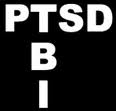Oct
29
The Grim Reaper: TBI Can Be a Spooky Demon
Filed Under Brain Injury, Trauma | Comments Off on The Grim Reaper: TBI Can Be a Spooky Demon
by Janet J. Seahorn

Several weeks ago I talked about going to a Traumatic Brain Injury (TBI) conference and promised I’d write more about what I learned. Now I feel like the Grim Reaper explaining the various causes and symptoms of a TBI.
Luckily, being Halloween, perhaps the trick is dealing aggressively with the spooks of TBI injuries and the treat is getting better with focus and determination.
Much of this information is taking from a brochure, Brain Injury: How to Recognize and Treat It, by Harvey Jacobs, Ph.D. and Flora Hammond, M.D.
So let’s talk about some of the “tricks” of a TBI. First, it can be due to many causes: falls, car accidents, sports, blasts/explosions, strokes, viruses, or aneurysms (weak spots in the walls of the brain’s arteries and veins).
Since many of our war vets have experienced a TBI mainly from an outside force, I will concentrate on this area. If the force is powerful enough, it can cause bleeding in the brain, bruising, and/or tearing of the brain cells.
“Once a traumatic brain injury occurs,” according to the experts, “there is risk of additional damage over the next several days due to lack of oxygen or reduced blood flow or medical complications”. When a blast occurs due to an IED or other combat offenses, the shock waves move through the brain and injure the soft brain tissue causing cell damage. The person doesn’t have to be unconscious to encounter a TBI, but the results can be quite damaging, nevertheless.
Another trick of this demon is that no two injuries are exactly alike due to the location, size, and impact of the TBI; cells can begin to die within four minutes of losing oxygen because of the impact. Sometimes, if the injury does not appear severe or life threatening it can be missed, yet the results are nothing short of problematic.
The person,” according to Jacobs and Hammond, “may appear dazed or just a little confused for a brief time and then return to work or usual activities. Problems may develop later.” Often times other people notice the problems first, like a spouse, close friend, or employer. What they may notice is problems in the person’s short-term memory, difficulty in organizing and planning, shorter attention span or easily distracted, unclear speech, irritation, anxiety, depression, and other cognitive or emotional behaviors that weren’t present before the injury. Therefore, getting proper diagnosis and treatment is essential to restoring an individual to health and normal activity.
This Grim Reaper can’t leave you with such a dismal TBI spook, so take heart and recognize that help is available. There are more effective and innovative treatments than ever before if treatment begins immediately. Time is crucial. Don’t wait. The major part of the brain’s mending normally takes place within the first two years of the injury, but the brain can continue to mend far beyond that time.
Trust me, having experienced a mild TBI many years ago, I kept engaged with as many cognitive and physical activities as possible and this made all the difference with being able to return to a normal life – the best treat ever.
Oct
28
Obama Signs Veterans Health Care Legislation
Filed Under Veteran Benefits | Comments Off on Obama Signs Veterans Health Care Legislation
 American Forces Press Service
American Forces Press Service
WASHINGTON, Oct. 22, 2009 – President Barack Obama signed new legislation today that creates predictable funding for veterans’ health care.
The Veterans Healthcare Reform and Transparency Act fundamentally changes how the Department of Veterans Affairs receive health care funding. The reform calls for appropriations a year in advance after more than two decades of regular budget delays, Obama said from the White House East Room.
“Over the past two decades, the VA budget has been late almost every year, often by months,” the president said. “At this very moment, the VA is operating without a budget, making it harder for VA medical centers and clinics to deliver the care our vets need.”
Obama said that because of budget shortfalls, new doctors, nurses and critical staff aren’t hired on time. New health care facilities and programs often are put on hold, leaving veterans to pay the price for the government’s neglect, he said.
“This is inexcusable. It’s unacceptable. It’s time for it to stop,” he said. “And that’s just what we’ll do with this landmark legislation.”
The law gives VA more funding predictability so officials can better budget their needs, recruit better-trained professionals and upgrade equipment. Mostly, Obama said, the law gives veterans better access to quality care.
“In short, this is common-sense reform,” he said. “It promotes accountability at the VA. It ensures oversight by Congress. It is fiscally responsible by not adding a dime to the deficit, and it ensures that veterans’ health care will no longer be held hostage to the annual budget battles in Washington.
“Keeping faith with our veterans is work that is never truly done,” he continued. “Today’s veterans expect and deserve the highest quality care, as will tomorrow’s veterans, especially our men and women in Iraq and Afghanistan.”
Obama pledged his administration would continue in efforts to build a 21st-century VA. Since he’s taken office, the White House, VA and Pentagon have been working to “cut the red tape and backlogs,” he said.
He noted the administration has invested in mobile clinics to give veterans in rural areas better access, and cited the VA and Pentagon’s work to develop a single health care record for servicemembers to make their transition out of the military a simpler process.
Obama also vowed to end homelessness among veterans and praised the success of the Post-9/11 GI Bill, which offers qualified veterans better opportunities to attain higher education and training.
“All told, we have made the biggest commitment to veterans, the largest percentage increase in the VA budget in more than 30 years,” he said. “As a nation, we’ll pledge to fulfill our responsibilities to our veterans, because our commitment to our veterans is a sacred trust, and upholding that trust is a moral obligation.”
Oct
22
Here’s to the Heros: A Military Tribute
Filed Under American Patriotism | Comments Off on Here’s to the Heros: A Military Tribute
http://www.youtube.com/watch?v=LL-0mdEg0U4

Oct
20
PTSD Suffering & Control
Filed Under PTSD, Trauma, Treating PTSD | 1 Comment
By Janet J. Seahorn

This may be one of the most important blogs that I have written. Important because we are quickly becoming a people who, due to the recent attention on Post Traumatic Stress, are beginning to lump into the same basket all vets who return from conflict challenged by PTSD.
This is a major dilemma. It is vital that we as a nation, as communities, and as families start to have a more accurate description of the effects of combat trauma. Important because without correct information, we cannot help to mend the minds, hearts, and souls of those who suffer.
For that reason, solid facts through research on PTSD lead to better care. The problem, however, occurs when the media focuses only on those individuals who behave in extreme ways. Ways that make news casts, papers, and internet reading more exciting.
For the vast majority of veterans who return from combat tormented by the memories of war, the battle is within and remains there, silently distressing the individual.
But here is what is key to remember; the majority of vets are not personally or professional “out of control”. In fact, they spend a tremendous amount of time and energy trying to remain in control. For many, the periods of distress are when the person is alone, safe within the confines of house and home, or experiencing a severe physical or family crisis.
For most, the only people who see the anxiety and panic are not the outside world, but rather those within the vet’s inner-most circles: spouses, children, siblings, parents, and very close friends.
There are already many young (and some older vets) who are refusing to acknowledge they have a problem, or seek medical interventions even when they realize they need it. And why would they? Fearing they will be labeled and thrown into that “media basket” of dysfunction, they prefer to maintain a mask of silence. This isn’t acceptable, nor is it effective in mending the situation.
Yes, PTSD is a reality for many in our world, not just combat vets. For sure, it is a challenge like any “reordering” of the mind and body. Yet, most individuals move forward to live productive, successful lives. And if the individual gets appropriate medical and professional attention, that life and those who are closest to him/her, the living becomes immensely easier.
So let’s begin to write and tell stories of these quiet, courageous men and women. Stories of heroes and heroines who survive and manage to prosper in many areas of their lives; appreciating the fact that to be a hero requires an extraordinary act of bravery within an ordinary human spirit.
Oct
13
Brain Trauma, Soul Trauma
Filed Under Brain Injury, TBI & PTSD, Trauma | Comments Off on Brain Trauma, Soul Trauma
by Janet J. Seahorn
 OK, here is something to ponder; can Brain Trauma cause Soul Trauma?
OK, here is something to ponder; can Brain Trauma cause Soul Trauma?
By “brain trauma”, I mean a traumatic brain injury, a verifiable medical condition caused by some insult to the brain, i.e., car accident, falling, hitting one’s head, being in or close to an IED explosion, shaken baby syndrome, stroke… and the list goes on.
Every year over 1.5 million Americans experience some type of traumatic brain injury (TBI).
Personally, I believe the number is higher, as many incidents never get reported because no one knows or realizes that such a trauma has occurred. Which is why all of the information on TBI makes me muse over what actually goes on in the brain/mind, body, and soul when it has been injured?
I think about the mind and wonder how such a magnificent organ can be in command of so much in a person: body, emotions, perceptions…
I think about the soul and wonder how such an invisible concept can make such a difference in one’s life; a difference that gives one strength, courage, and hope to make it through some truly desperate times.
I think about how anyone who experiences a restructuring of the brain after some internal or external trauma can move forward in ways that are nothing short of miraculous. A healing that leaves the brain changed, but the person still functioning.
I think about how the soul and spirit must somehow be part of the healing that takes place in the organ called the brain. How the soul/spirit may give some kind of divine direction to the mind that allows it to mend. In many cases it may not mend itself back to its original state but reorganizes in such a manner that perhaps enhances the individual with greater compassion, humility, and fearlessness.
I’d like to believe that angels watch over us and it is this entity that connects the mind, soul, and heart. Noah benShea thoughtfully noted, “Faith sees around corners”. Maybe these celestial beings are also within the corners of our battered minds, soothing, comforting, and mending.
Most days, though, I am just immensely appreciative that something more powerful than I can ever imagine is taking some charge over all of our well-being, perhaps from that place we call Heaven.
Oct
7
Coming Home
Filed Under American Patriotism, Life, PTSD, Today's War | Comments Off on Coming Home
by Stars and Stripes

He’s a businessman now. He has leisure time. He reads his law books, looks for a house to buy. He sleeps on clean sheets, and takes Hawaiian cruises with his family.
But a part of Dave Johnson is still in Iraq.
A couple of times a week, he wakes up there – “in the middle of a giant explosion,” he said, like the one on his second tour that took out his patrol base, killed one colleague, maimed another and injured a dozen more.
The former sergeant, who enlisted after getting a law degree to do his duty for his country – then was stop-lossed for 18 months – revisits the battleground in his waking life, too.
Every now and then, he says, he’ll have a flashback – “a very, very vivid memory” – of one among six or so events during his first Iraq tour.
A certain suicide bombing in a market, for instance.
“It was the last one I ever went to. We were the first responders,” Johnson, 30, said. “I felt the concussion. The blast wasn’t as big so there were much larger body parts, an arm here, a leg …
“It was me and Capt. [Matt] Lee and a member of the British Parliament. The entire market burned to the ground,” he said.
The memories creep in without warning, he said, and the acute flashback, including increased pulse and perspiration rate and a pounding heart, lasts about 30 seconds. Johnson’s twin brother, who spends a lot of time with him teaching him the family roofing business, can tell when it happens.
“He says, ‘You’re twitching again, dude.’
So Johnson wasn’t surprised to be diagnosed with post-traumatic stress disorder. The nightmares, the residual feelings of terror, the loss of sleep – all of it “affects you all day,” he said. And to have a flashback in the courtroom would not be good, he said.
Experts estimate that fully 20 percent of Iraq-deployed troops have developed PTSD and that nearly all show some post-combat anxiety. Yet despite a Defense Department effort to remove the stigma surrounding such psychological impacts of combat, many soldiers are still hesitant to admit they may be having problems and seek help.
Now Johnson spends his days learning the family roofing business from his brother. He’s looking for a starter house. Evenings he reads up on civil law so he can assist with the firm’s legal work.
Life is good, he said.
Yet as glad as he is to be out, he has few regrets about having been a grunt.
“Riding in a helo, staying up for 50-some hours straight, carrying a machine gun … I wouldn’t have traded it for the world.”

